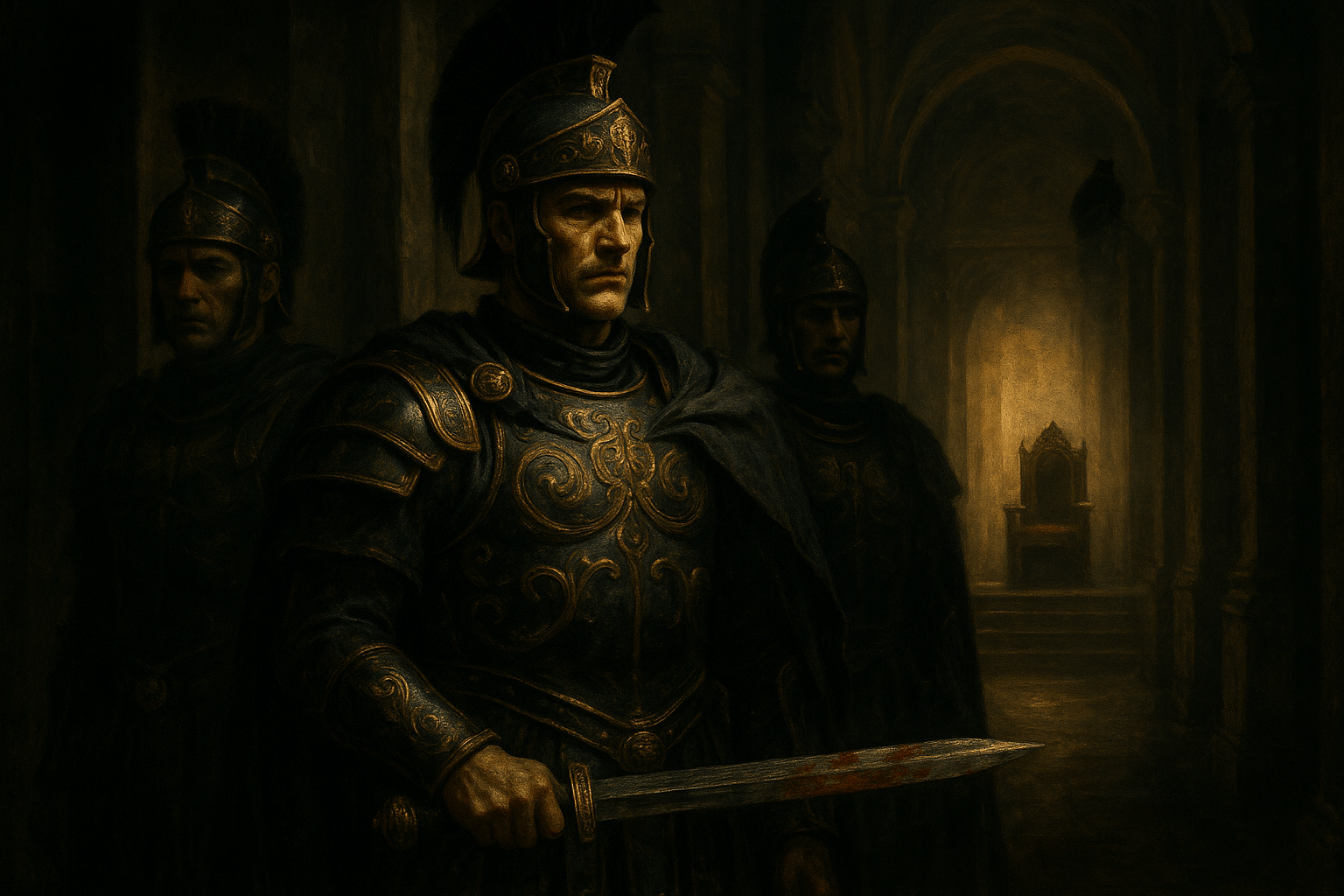From Humble Bodyguards to Imperial Powerhouse
The origins of the Praetorian Guard were relatively humble, rooted in the traditions of the Roman Republic. Successful generals would select a cohort of their finest soldiers to serve as a personal bodyguard, protecting them in the command tent, or praetorium. These were the first Praetorians. But it was Rome’s first emperor, Augustus, who transformed this ad-hoc unit into a permanent, institutionalized force.
Ever the political genius, Augustus understood the need for a loyal military presence in Rome, yet he was acutely aware of the republican taboo against stationing troops within the city’s sacred boundaries. His solution was masterful. He established nine Praetorian cohorts of about 500 men each, but only stationed three in Rome at any given time, billeted discreetly among the civilian population. To the public, they were little more than a police force or fire brigade.
To ensure their loyalty, Augustus showered them with privileges. Praetorians served for only 16 years, compared to the 20 or 25 years of a standard legionary. Their pay was more than triple that of a common soldier, and upon retirement, they received a handsome bonus. For a young Italian man, joining the Guard was the fast track to wealth, status, and power. For Augustus, he had created a loyal force to secure his new regime.
The Kingmakers Emerge: A Dangerous Precedent
For a time, the system worked. Under the emperor Tiberius, however, a ruthlessly ambitious Praetorian Prefect named Lucius Aelius Sejanus saw the Guard’s true potential. In 23 AD, Sejanus persuaded Tiberius to consolidate all nine cohorts into a single, massive fortress just outside Rome’s walls: the Castra Praetoria. This move concentrated the Guard’s military might, transforming them from a dispersed security detail into a unified army-in-waiting, right on the emperor’s doorstep.
The Guard first tasted its kingmaking power in 41 AD, following the assassination of the mad emperor Caligula. While the Senate debated restoring the Republic, a group of Praetorians scoured the palace. According to the historian Suetonius, they found Caligula’s uncle, the scholarly and frightened Claudius, hiding behind a curtain. Instead of killing him, they hailed him as the new emperor. They carried him back to their camp, and the next day, the cowed Senate had no choice but to confirm their choice. Claudius, in gratitude, rewarded the Guard with a massive bonus, or donativum. The dangerous precedent was set: the Guard could make an emperor, and they expected to be paid for it.
The Price of the Throne: A Cycle of Murder and Bribery
This “donative” became the central pillar of Praetorian politics. The loyalty of the Guard was now explicitly for sale to the highest bidder, and a new emperor’s first act was almost always to promise them a fortune.
This transactional relationship spiraled into chaos in 69 AD, the infamous “Year of the Four Emperors.” When the emperor Galba refused to pay the donative promised in his name, the Guard took matters into their own hands. They murdered Galba in the middle of the Roman Forum and proclaimed his rival, Otho, as the new emperor. Otho had bought the throne. This act triggered a devastating civil war, as provincial armies, disgusted by the Praetorians’ brazen act, marched on Rome to install their own candidates.
The Guard’s arrogance reached its shameful peak in 193 AD. After murdering the new, reform-minded emperor Pertinax for trying to instill discipline, the Praetorians committed their most outrageous act. They barred the gates of their camp and announced they would sell the Roman Empire to the highest bidder. Two senators presented themselves: Titus Flavius Sulpicianus and Didius Julianus. Standing on the ramparts, the guardsmen held a literal auction for the throne. Didius Julianus won, promising each soldier an astronomical 25,000 sesterces.
This was a step too far. The news of the empire being sold like common property sparked outrage across the provinces. Three powerful generals, including Septimius Severus, marched on Rome. Didius Julianus’s reign lasted a mere 66 days before he was killed. Severus, a ruthless pragmatist, dealt with the Praetorians decisively. He tricked them into assembling, unarmed, on a field outside the city, where he surrounded them with his own loyal legions. He stripped them of their armor, ignominiously discharged them, and banished them from Rome. He then reformed the Guard, staffing it not with privileged Italians, but with battle-hardened veterans from his own legions across the empire. The Guard would continue, but its power was, for a time, broken.
The Final Disbandment
For the next century, the Guard played a more subdued, though still influential, role. They were instrumental in the politics of the turbulent 3rd century, but the age of auctioning the throne was over. Their end came with the rise of one of Rome’s greatest emperors: Constantine the Great.
In 312 AD, Constantine invaded Italy to settle a power struggle with his rival, Maxentius, who held Rome. The core of Maxentius’s army was the old-but-still-formidable Praetorian Guard. At the decisive Battle of the Milvian Bridge, Constantine’s forces crushed Maxentius’s army, and the Praetorians with it.
Upon entering Rome as the undisputed ruler of the West, Constantine took his final revenge. He saw the Praetorian Guard for what they were: a dangerously independent power base within his capital and a symbol of a pagan, decadent past. He made a decision no emperor before him had dared. He permanently and completely disbanded the Praetorian Guard. To ensure they could never be reformed, he demolished the Castra Praetoria, their mighty fortress for over 300 years, and built churches on its grounds. The Guard that had made and unmade so many emperors was simply erased from history.
The story of the Praetorian Guard is a timeless cautionary tale. They were created to protect the system but ultimately became its greatest corrupting influence, a stark reminder that ultimate power, once granted, is rarely contained. For centuries, the question in Rome was not just who would be emperor, but who the Praetorians wanted to be emperor.
